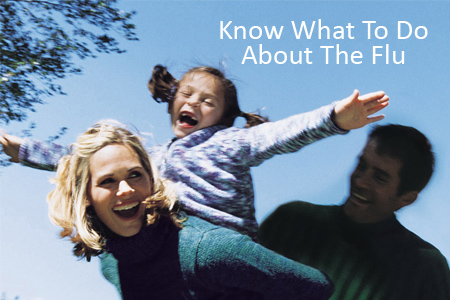The Centers For Disease Control (CDC) recommends that people get their seasonal flu vaccine as soon as vaccine becomes available in their community. Vaccination before December is best since this timing ensures that protective antibodies are in place before flu activity is typically at its highest.
CDC continues to encourage people to get vaccinated throughout the flu season, which can begin as early as October and last as late as May. Over the course of the flu season, many different influenza viruses can circulate at different times and in different places. As long as flu viruses are still spreading in the community, vaccination can provide protective benefit.
Who should get vaccinated against influenza:
The following lists include all groups recommended to get the flu vaccine, as well as those who are not recommended to receive either the flu shot or the nasal spray vaccine. Talk to your doctor or nurse if you have any questions regarding what flu vaccine options are best for you and your family.
The following groups are recommended to get a yearly flu vaccine:
•All persons aged 6 months and older should be vaccinated annually.
•Protection of persons at higher risk for influenza-related complications should continue to be a focus of vaccination efforts as providers and programs transition to routine vaccination of all persons aged 6 months and older.
•When vaccine supply is limited, vaccination efforts should focus on delivering vaccination to persons who:
◦are aged 6 months through 4 years (59 months);
◦are aged 50 years and older;
◦have chronic pulmonary (including asthma), cardiovascular (except hypertension), renal, hepatic, neurologic, hematologic, or metabolic disorders (including diabetes mellitus);
◦are immunosuppressed (including immunosuppression caused by medications or by human immunodeficiency virus);
◦are or will be pregnant during the influenza season;
◦are aged 6 months through 18 years and receiving long-term aspirin therapy and who therefore might be at risk for experiencing Reye syndrome after influenza virus infection;
◦are residents of nursing homes and other chronic-care facilities;
◦are American Indians/Alaska Natives;
◦are morbidly obese (body-mass index is 40 or greater);
◦are health-care personnel;
◦are household contacts and caregivers of children aged younger than 5 years and adults aged 50 years and older, with particular emphasis on vaccinating contacts of children aged younger than 6 months; and
◦are household contacts and caregivers of persons with medical conditions that put them at higher risk for severe complications from influenza.
Who should not receive the flu shot (TIV):
•People who have ever had a severe allergic reaction to eggs. People who have had a mild reaction to egg—that is, one which only involved hives—may receive TIV with additional precautions. Make sure your healthcare provider knows about any allergic reactions.
•People who have ever had a severe allergic reaction to influenza vaccine.
•People with a history of Guillain–Barré Syndrome (a severe paralytic illness, also called GBS) that occurred after receiving influenza vaccine and who are not at risk for severe illness from influenza should generally not receive vaccine. Tell your doctor if you ever had Guillain-Barré Syndrome. Your doctor will help you decide whether the vaccine is recommended for you.
•People under 65 years of age should not receive the high-dose flu shot.
•People who are under 18 years old or over 64 years old should not receive the intradermal flu shot.
•If you are sick with a fever when you go to get your flu shot, you should talk to your doctor or nurse about getting your shot at a later date. However, you can get a flu shot at the same time you have a respiratory illness without fever or if you have another mild illness.
The following groups should not receive the nasal spray vaccine (LAIV):
•Adults 50 years of age and older or children from 6 through 23 months of age. (Children younger than 6 months should not get either influenza vaccine.)
•People who have ever had a severe allergic reaction to eggs. People who have had a mild reaction to egg—that is, one which only involved hives—may receive TIV (not LAIV) with additional precautions. Make sure your healthcare provider knows about any allergic reactions.
•People who have had a severe reaction to the vaccine in the past.
•People with asthma and children younger than 5 years with one or more episodes of wheezing within the past year.
•Pregnant women.
•Anyone with certain muscle or nerve disorders (such as seizure disorders or cerebral palsy) that can lead to breathing or swallowing problems.
•Anyone with a weakened immune system.
•Anyone in close contact with someone whose immune system is so weak they require care in a protected environment (such as a bone marrow transplant unit). Close contacts of other people with a weakened immune system (such as those with HIV) may receive LAIV. Healthcare personnel in neonatal intensive care units or oncology clinics may receive LAIV.
•Children or adolescents on long-term aspirin treatment.
•People with a history of Guillain–Barré Syndrome (a severe paralytic illness, also called GBS) that occurred after receiving influenza vaccine and who are not at risk for severe illness from influenza should generally not receive vaccine. Tell your doctor if you ever had Guillain-Barré Syndrome. Your doctor will help you decide whether the vaccine is recommended for you. •Your doctor will help you decide whether the vaccine is recommended for you.
•Tell your doctor if you have gotten any other vaccines in the past 4 weeks.
•Anyone with a nasal condition serious enough to make breathing difficult, such as a very stuffy nose, should get the flu shot instead.
•People who are moderately or severely ill should usually wait until they recover before getting flu vaccine. If you are ill, talk to your doctor about whether to reschedule the vaccination. People with a mild illness can usually get the vaccine.
Visit flu.gov for more information about the flu virus.























